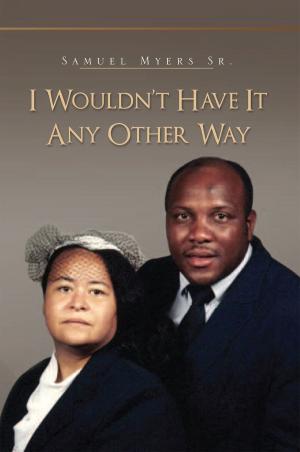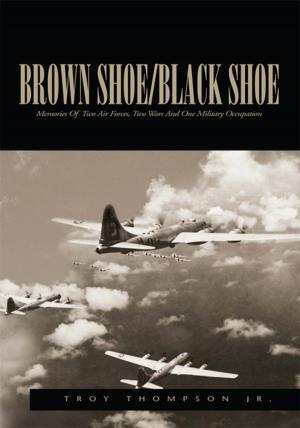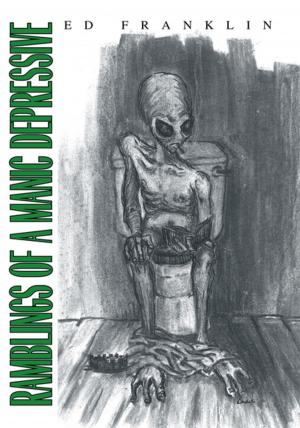World War 2 Is Not Over
A Combat Infantryman's Experience in a German Pow Camp
Nonfiction, History, Military, World War II| Author: | Frank Yarosh | ISBN: | 9781477163160 |
| Publisher: | Xlibris US | Publication: | December 13, 2001 |
| Imprint: | Xlibris US | Language: | English |
| Author: | Frank Yarosh |
| ISBN: | 9781477163160 |
| Publisher: | Xlibris US |
| Publication: | December 13, 2001 |
| Imprint: | Xlibris US |
| Language: | English |
This book is an exciting personal WW2 story which holds the readers interest from beginning to end --- a true page turner of fast moving events. Written in a non-sophisticated language style, Frank shares intimate happenings, thoughts and details of some of his harsh experiences while in intense combat, cruel captivity and a frustrating afterwards. The reader will find the wartime events enlightening and somewhat entertaining in an unusual manner.
After registering for the draft when 18, at Lopez, PA. Frank was called up March, 1943, and after completing three months of intense combat engineering training at Fort Lewis, WA, he was offered officer candidate training at Fort Belvoir, VA or the Army Specialized Training Program (ASTP) at Brigham Young University, BYU, Provo, Utah.
Since General Ike needed infantrymen for the invasion of France in 1944, Frank reluctantly had to leave BYU and was assigned to Company C, 1st Battalion, 274th Regiment, 70th Division, Camp Adair, OR. As a youngster, Frank was a tough, outdoor type of kid, since his boyhood life included lots of hard work during the 1930 depression years as well as trapping, fishing and hunting. All contributed to a terrific background for the rigors of becoming a well-trained infantryman. After completing three months of rough training in the swamps of Oregon, he was selected and qualified to attend West Point. After much deliberation and consideration of West Point requirement to serve many years after graduation, Frank elect6ed to stay with Co. C as an infantry scout.
Within a short time, Frank and his outfit were shipped to Marseilles, France, in December 1944. By Christmas time, Frank was on the West Bank of the Rhine River in frigid, snowy northern France. On January 4, 1945, he was assigned to lead a large scaled attack as a scout onto Phillipsbourg, France. He barely survived the horrors and ordeals of eyeball to eyeball combat until being relieved on January 19, 1945. His unit was recognized for successful tenacious combat against well-seasoned German troops.
While going to another assignment on January 20th, Frank fell off an icy snow covered mountainous trail and severely sprained his left ankle. He was assigned to a snow covered large concrete pillbox on the Maginot Line with three other infantrymen to spy on nearby German troops. At midnight on January 21, during a blizzard, a white clad Waffen S.S. Troop patrol fired explosives into the isolated pillbox and Frank and his buddies became prisoners of war.
Franks recollection of his five hour interrogation by a face slapping German Intelligence officer in an isolated farm house somewhere across the Rhine in Germany was intense and of a dramatic movie scene quality that shook him to the core of his being. Transport in a crowded filthy 40 and8s boxcar for five days through Germany was the beginning of cruel treatment by his captors. Besides the train being strafed by American planes, since it was not marked, the prisoners were spat on and sworn at by civilians in train stations.
Stalag XI-B at Fallingbostel in Northern Germany near Bremen was filled with thousands of POWs from the many nations that Hitler had conquered, as well as captured Allied troops. Many POWs died each day and were buried in mass trenches. Franks barracks, filled with sad looking American GIs, was unheated and loaded with lice. Since he was not an officer, Private 1st Class Yarosh had to work digging out tree stumps without breakfast or lunch after walking about 4 miles to the proposed V2 rocket site.
Supper back at the barracks consisted of one slice of dark hard bread and maybe two small cold boiled potatoes and a cup of weak cold soup. This slim diet soon produced a skeleton frame on many POWs. Since Frank had an excellent knowledge of the Russian language, he made many dangerous nighttime trips to the nearby Russian compounds to buy vegetables with American cigarettes. Th
This book is an exciting personal WW2 story which holds the readers interest from beginning to end --- a true page turner of fast moving events. Written in a non-sophisticated language style, Frank shares intimate happenings, thoughts and details of some of his harsh experiences while in intense combat, cruel captivity and a frustrating afterwards. The reader will find the wartime events enlightening and somewhat entertaining in an unusual manner.
After registering for the draft when 18, at Lopez, PA. Frank was called up March, 1943, and after completing three months of intense combat engineering training at Fort Lewis, WA, he was offered officer candidate training at Fort Belvoir, VA or the Army Specialized Training Program (ASTP) at Brigham Young University, BYU, Provo, Utah.
Since General Ike needed infantrymen for the invasion of France in 1944, Frank reluctantly had to leave BYU and was assigned to Company C, 1st Battalion, 274th Regiment, 70th Division, Camp Adair, OR. As a youngster, Frank was a tough, outdoor type of kid, since his boyhood life included lots of hard work during the 1930 depression years as well as trapping, fishing and hunting. All contributed to a terrific background for the rigors of becoming a well-trained infantryman. After completing three months of rough training in the swamps of Oregon, he was selected and qualified to attend West Point. After much deliberation and consideration of West Point requirement to serve many years after graduation, Frank elect6ed to stay with Co. C as an infantry scout.
Within a short time, Frank and his outfit were shipped to Marseilles, France, in December 1944. By Christmas time, Frank was on the West Bank of the Rhine River in frigid, snowy northern France. On January 4, 1945, he was assigned to lead a large scaled attack as a scout onto Phillipsbourg, France. He barely survived the horrors and ordeals of eyeball to eyeball combat until being relieved on January 19, 1945. His unit was recognized for successful tenacious combat against well-seasoned German troops.
While going to another assignment on January 20th, Frank fell off an icy snow covered mountainous trail and severely sprained his left ankle. He was assigned to a snow covered large concrete pillbox on the Maginot Line with three other infantrymen to spy on nearby German troops. At midnight on January 21, during a blizzard, a white clad Waffen S.S. Troop patrol fired explosives into the isolated pillbox and Frank and his buddies became prisoners of war.
Franks recollection of his five hour interrogation by a face slapping German Intelligence officer in an isolated farm house somewhere across the Rhine in Germany was intense and of a dramatic movie scene quality that shook him to the core of his being. Transport in a crowded filthy 40 and8s boxcar for five days through Germany was the beginning of cruel treatment by his captors. Besides the train being strafed by American planes, since it was not marked, the prisoners were spat on and sworn at by civilians in train stations.
Stalag XI-B at Fallingbostel in Northern Germany near Bremen was filled with thousands of POWs from the many nations that Hitler had conquered, as well as captured Allied troops. Many POWs died each day and were buried in mass trenches. Franks barracks, filled with sad looking American GIs, was unheated and loaded with lice. Since he was not an officer, Private 1st Class Yarosh had to work digging out tree stumps without breakfast or lunch after walking about 4 miles to the proposed V2 rocket site.
Supper back at the barracks consisted of one slice of dark hard bread and maybe two small cold boiled potatoes and a cup of weak cold soup. This slim diet soon produced a skeleton frame on many POWs. Since Frank had an excellent knowledge of the Russian language, he made many dangerous nighttime trips to the nearby Russian compounds to buy vegetables with American cigarettes. Th















